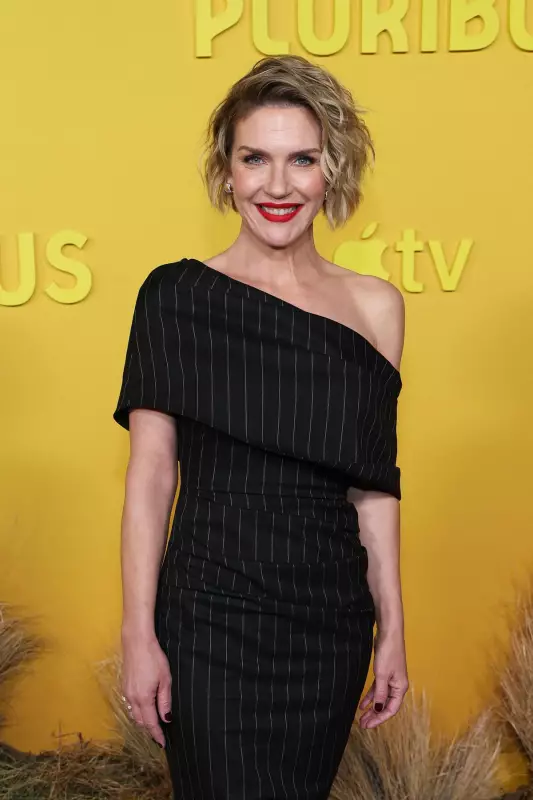
For years, Australian audiences watched Rhea Seehorn steal every scene she appeared in as the complex lawyer Kim Wexler in Better Call Saul. Now, the 53-year-old actor finally claims her rightful place at the centre of the story in her first major leading role.
From Supporting Player to Leading Lady
Seehorn's journey to leading status has been anything but straightforward. After heading to Hollywood two decades ago to star in the short-lived sitcom I'm With Her, she found herself consistently pigeonholed in comedic roles that barely scratched the surface of her capabilities.
Better Call Saul co-creators Vince Gilligan and Peter Gould changed everything when they cast her as Kim Wexler, the morally complicated lawyer who joins Bob Odenkirk's Jimmy McGill on his descent into Albuquerque's criminal underworld. What began as a minor character with one line in the pilot evolved into one of television's most compelling characters over six acclaimed seasons.
"Hollywood is a f...ing a..hole sometimes," Odenkirk remarked about Seehorn's earlier career struggles. "In that case, it was a great example of, like, what's wrong with these people?"
The Breakthrough Role That Changed Everything
By the time Better Call Saul concluded its run in 2022, the series had transformed from the Jimmy McGill show into more of a Jimmy-Kim double act. Seehorn earned two Emmy nominations for her portrayal of a character whose unresolved trauma, adrenaline-chasing mischief, and haunting guilt created one of television's most nuanced performances.
Gilligan recalls initially having minimal plans for Kim's character: "Maybe she'll be a love interest for Jimmy. Maybe she's not. If she doesn't work out, hell, Jimmy could get a new girlfriend."
Instead, Seehorn's on-screen range and offscreen empathy made Kim indispensable. Odenkirk praised not only her work ethic—her scripts were always covered in annotations—but emphasized that "she's just one of the best people."
Pluribus: A Vehicle Built for Seehorn's Talents
Now, Seehorn headlines Gilligan's new Apple TV+ series Pluribus, which launched recently. The drama represents her first major on-screen lead role, playing Carol Sturka, a surly romance novelist who remains immune during a global epidemic of unadulterated happiness.
The series is specifically engineered for Seehorn's unique talents. While Carol differs from the perpetually controlled Kim—she's outspoken, acerbic, and frequently lands in hot water—there are similarities in their repressed trauma, fierce independence, and underlying intensity.
Gilligan actually reshaped the protagonist specifically for Seehorn after working with her on Better Call Saul. "I figured it was high time that she was No.1 on the call sheet," he acknowledged.
Karolina Wydra, Seehorn's Pluribus co-star, expressed disbelief that anyone ever doubted Seehorn's leading lady potential: "That blows my mind, because you watch this, and you're like, 'You're nothing but a leading lady.'"
A Career Built on Perseverance
Seehorn's path to recognition began far from Hollywood. Born in Norfolk, she moved with her family to Japan and Arizona before spending most of her youth in Virginia Beach due to her father's counterintelligence career.
She discovered acting almost by accident while studying art at George Mason University in Fairfax County, Virginia. Taking acting as an elective led her to explore regional theatre, where she found herself enchanted by onstage storytelling.
Seehorn demonstrated remarkable determination from the beginning, volunteer ushering at local theatres, reading stage directions in new play workshops, and even approaching established actors like Holly Twyford with offers of $40 for private coaching sessions.
Twyford remembers a tenacious self-starter who turned unremarkable parts into scene-stealers before evolving into a lead. "It was crystal-clear from the get-go just how talented she was," she recalled.
After twelve years in Washington DC's theatre scene, Seehorn moved to New York and made her Broadway debut in a 2001 production of Neil Simon's 45 Seconds From Broadway. Her relocation to Los Angeles followed soon after when she booked I'm With Her.
Breaking Free from Comedy Typecasting
Despite steady television work in shows like Franklin & Bash and Whitney, Seehorn struggled to shed her comedic reputation when pursuing dramatic roles.
"The industry definitely pigeonholes comedy people, and then additionally sitcom people—especially multi-camera—in a way that is absolutely unfair and unjustified," Seehorn explained.
She recalled one particularly frustrating audition where the feedback was: "They're just really worried about her being a comedic actress." Seehorn's bemused response: "I just did the scene dramatically for you. Do you think on the day I'm going to show up with big red shoes and a ball nose?"
Embracing Complex Characters
In Pluribus, Seehorn tackles another complex character in Carol, whose immunity to the happiness epidemic leaves her isolated in a world of blissful people. The role allows Seehorn to explore emotions she often suppresses in her own life.
"I love that she's unapologetically angry, and that is something in my real life that I suppress constantly," Seehorn admitted. "When she is exposed to everything and it's just raw nerves, she has almost no ability to just pull it together and go along with the flow."
The series remains deliberately enigmatic—Seehorn herself has "nine pages of things I'm not allowed to say"—but it poses profound questions about happiness, autonomy, and the human condition.
Finally Getting Her Due?
Beyond the Gilligan universe, Seehorn has recently appeared in Bad Boys: Ride or Die alongside Will Smith and Martin Lawrence, and earned an Emmy nomination for her work in the short-form series Cooper's Bar.
Yet when asked if Hollywood has finally started to give her the recognition she deserves, Seehorn remains characteristically humble and self-effacing.
"You cannot make that the headline—that Rhea thinks she was underestimated," she exclaimed through mortified laughter. "It's going to make me seem like I think I'm awesome."
After more than an hour discussing her career's ups and downs, she still seemed allergic to the notion that she's earned less acclaim than she deserves. Adopting an egotistical tone for a perfect wisecrack, she quipped: "Finally, people can correctly estimate me."
For Australian audiences who've followed her career, Rhea Seehorn's leading role in Pluribus feels both long overdue and perfectly timed, proving that sometimes the most compelling stories aren't about overnight success, but about perseverance finally paying off.





